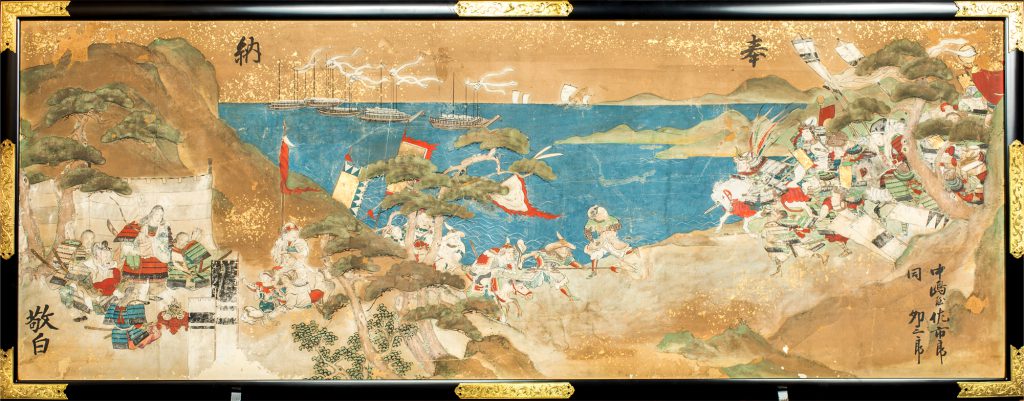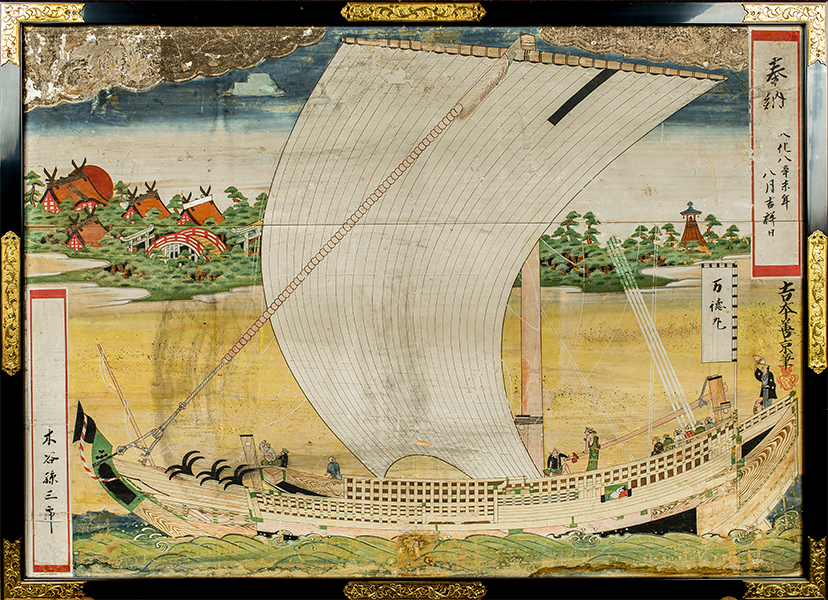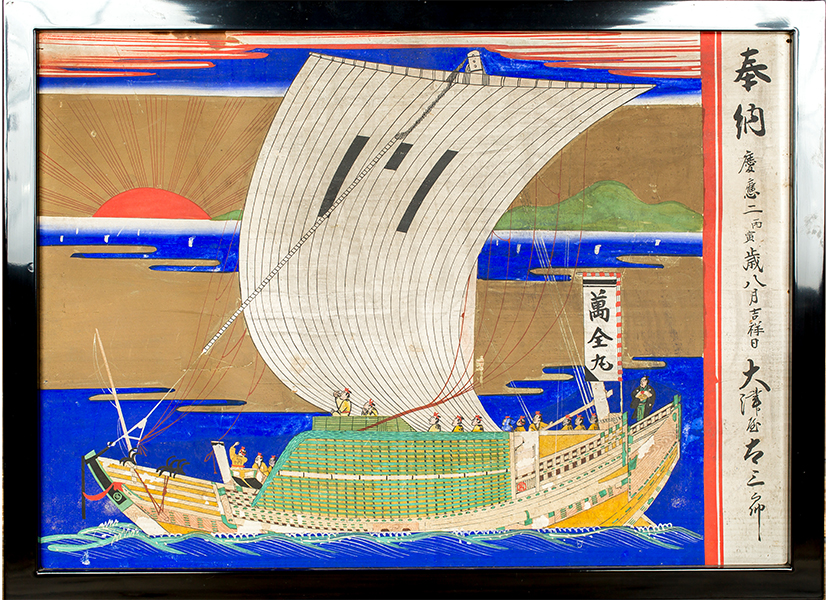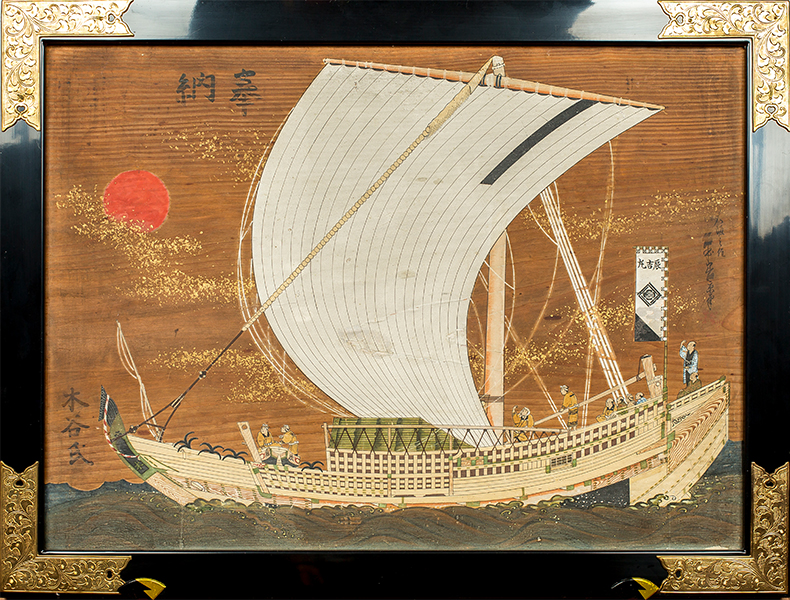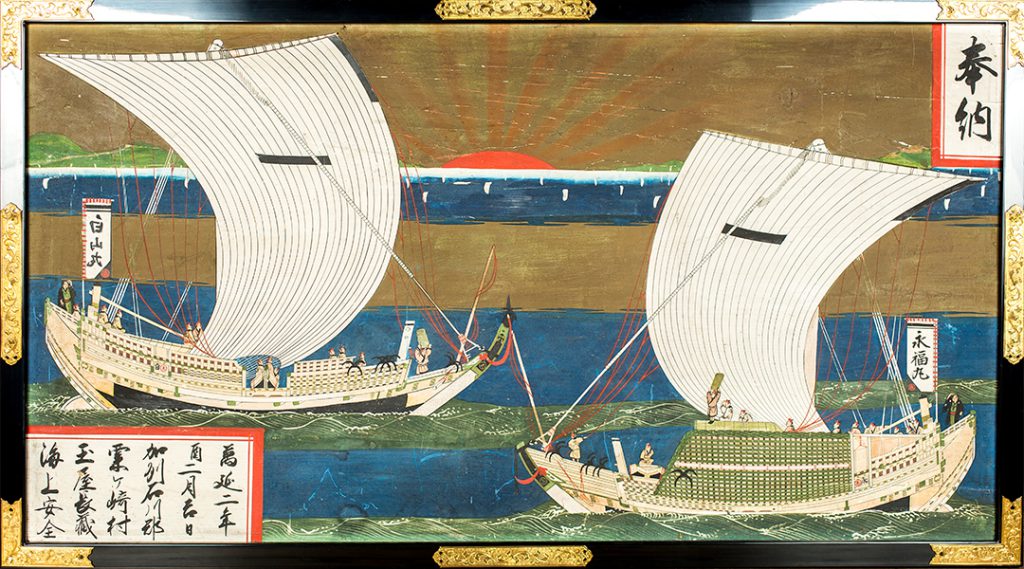Business
Awagasaki Hachiman Shrine Ema Preservation and Maintenance Project
Service- TOP
- Business
- Past Activities
- Awagasaki Hachiman Shrine Ema Preservation and Maintenance Project
Awagasaki Hachiman Shrine Ema Preservation and Maintenance Project Implementation period:1995 to 1999
Restoring the Magnificent Ship Ema Donated by Kitamaebune Ship Owners
Situated near the port where the Kitamaebune ships docked, Awagasaki Hachiman Shrine has long been a site of reverence for the wealthy and influential Kitamaebune ship owners. The shrine holds numerous magnificent ship-themed ema, donated by these merchants known as "sea magnates." These ema have high historical and cultural significance. The project focused on supporting the preservation and restoration of these ship ema.
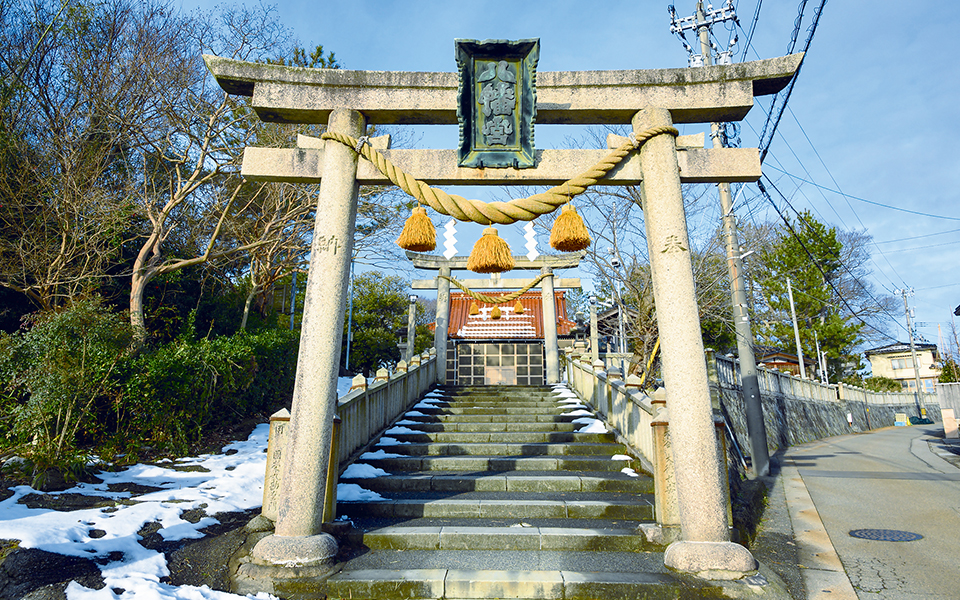
The shrine is located in Awagasaki, a town adjacent to the northern part of Kanazawa City, close to the Port of Nishi, and is home to 19 ema.
Among these, seven ship ema were donated by the family of the ship merchant Kiya Toemon during the Bunka and Bunkyu periods (1804-1863). This collection of large ship ema is unique in the region and is highly valuable.
In 1982, these 19 ema were designated as tangible folk cultural assets by Kanazawa City. In 2018, 11 ship ema were designated as the first "Ship Heritage" in Japan. Later, in 2019, these 11 ship ema, along with two large ema, were recognized as part of Japan’s National Heritage.
The foundation provided financial support for the restoration of five out of the 19 ema. These restored ema are now housed at Awagasaki Hachiman Shrine and are designated as important cultural assets.
Restored Ship Ema
Housed at Awagasaki Hachiman Shrine (Kanazawa City Tangible Folk Cultural Asset Designation, Japan Heritage Recognition, and Four Ship Ema Designated as Ishikawa Prefecture Tangible Folk Cultural Assets)
